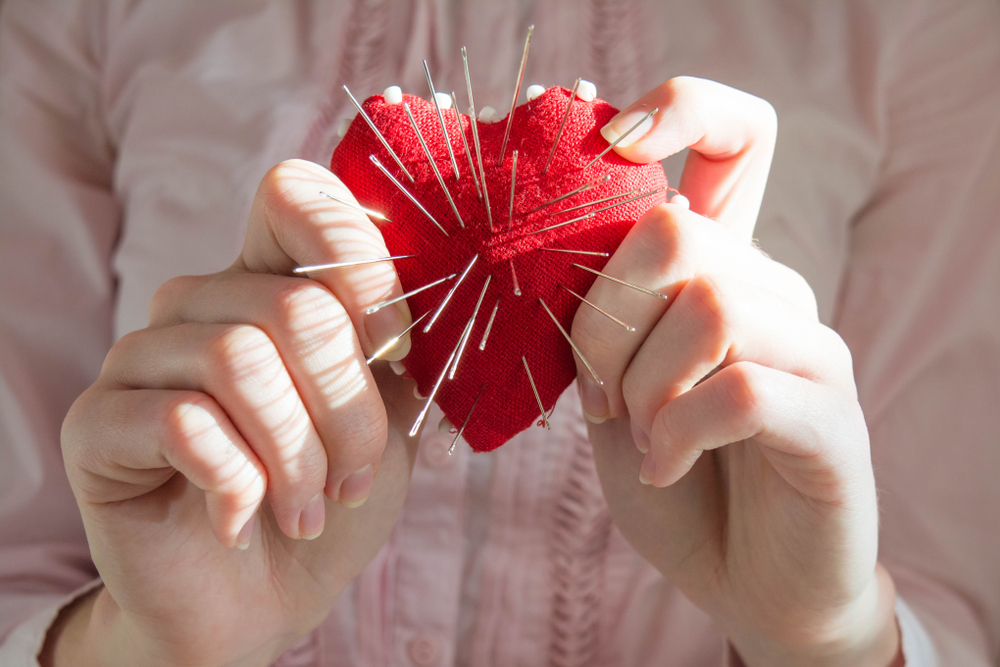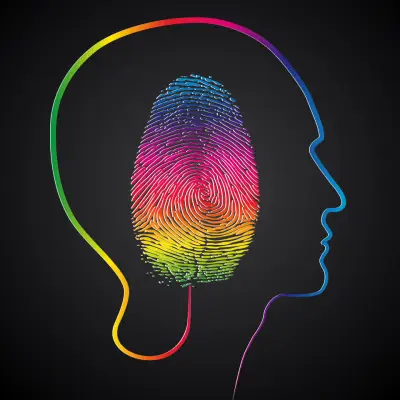Have you ever wondered why some people seem to have an intense fear of commitment or marriage? Perhaps you're experiencing this fear yourself, or you know someone who is. This fear has a name: gamophobia.
In this blog post, we'll explore what gamophobia is, its causes, symptoms, and how it can be treated. We'll also look at how to support someone with gamophobia and the differences between gamophobia and other related fears.
Jump to:
What is Gamophobia?

Gamophobia, derived from the Greek words "gamos" (marriage) and "phobos" (fear), is the fear of commitment, marriage, or entering into a serious relationship. This fear goes beyond typical cold feet or nervousness before a wedding. It can cause significant distress and interfere with one's ability to form or maintain relationships.
This fear can manifest in various ways, such as avoiding relationships, feeling anxious at the thought of long-term commitment, or experiencing physical symptoms when faced with the idea of marriage.
Recommended for you!
Best SellersWhat is the Cause of Gamophobia?
The root cause of gamophobia can be complex, as it often involves a mix of psychological, emotional, and sometimes social factors. Here are some potential causes:
Past Trauma or Negative Experiences
People who have experienced a traumatic event related to relationships, such as a difficult breakup, divorce, or witnessing the marital problems of parents, might develop gamophobia. These experiences can create a deep-seated fear of repeating similar pain.
Fear of Failure
Some people fear commitment because they are afraid of failing at it. This fear can stem from low self-esteem or a lack of confidence in their ability to maintain a healthy relationship.
Attachment Issues
Attachment theory suggests that early relationships with caregivers shape our ability to form secure bonds later in life. Those with insecure attachment styles may struggle with commitment due to fears of abandonment or intimacy.
Societal and Cultural Influences
Cultural and societal norms can also play a role. In societies where marriage is highly valued, the pressure to marry can create anxiety. Conversely, in cultures that value independence, the fear of losing your autonomy may contribute to gamophobia.
What is the Difference Between Gamophobia and Philophobia?

While gamophobia is the fear of marriage or commitment, philophobia is the fear of falling in love or being in love. Though they are related, they are not the same. Someone with philophobia may avoid relationships altogether to avoid the risk of falling in love, while a person with gamophobia might engage in relationships but fear taking them to the next level of commitment.
How Do You Know if You Have Gamophobia?
Recognising gamophobia involves paying attention to your thoughts, feelings, and behaviours regarding commitment and marriage. Here are some common signs:
Avoidance of Relationships
Consistently avoiding dating or relationships, or frequently ending relationships when they start to get serious, can be a sign of gamophobia.
Anxiety and Distress
Feeling intense anxiety, stress, or panic at the thought of marriage or long-term commitment is a key indicator. This anxiety can manifest physically, with symptoms such as sweating, trembling, or a racing heart.
Negative Beliefs About Marriage
Holding excessively negative views about marriage or committed relationships, such as believing they always end badly or lead to loss of freedom, can indicate gamophobia.
Relationship Sabotage
Sabotaging relationships through behaviours like infidelity, picking fights, or withdrawing emotionally when things start to get serious, can be a way to avoid commitment.
How Do You Treat Gamophobia?
Treating gamophobia often involves a combination of therapy, self-help strategies, and support from loved ones. Here are some effective approaches:
Therapy
- Cognitive Behavioural Therapy (CBT): CBT helps people identify and change negative thought patterns and behaviours related to their fear of commitment. It can be particularly effective in addressing the underlying beliefs and anxieties that contribute to gamophobia.
- Exposure Therapy: This type of therapy gradually exposes people to the idea of commitment in a controlled and supportive environment, helping them to desensitise their fear over time.
- Psychodynamic Therapy: This approach explores past experiences and unresolved conflicts that may be contributing to the fear of commitment, providing deeper insight and resolution.
Self-Help Strategies
- Mindfulness and Relaxation Techniques: Practising mindfulness, meditation, and relaxation exercises can help manage anxiety and reduce stress related to commitment.
- Journaling: Writing about your fears, experiences, and feelings can provide clarity and help you process your emotions.
- Education: Learning about relationships, commitment, and healthy communication can empower you to approach commitment with more confidence and less fear.
- Support from Loved Ones: Having a supportive network of friends and family who understand and respect your fears can make a significant difference. Open communication and understanding from your partner can also help ease anxiety.
How to Date Someone with Gamophobia

Dating someone with gamophobia requires patience, understanding, and clear communication. Here are some tips to help you navigate the relationship:
1. Be Patient and Understanding
Recognise that gamophobia is a genuine fear, not a personal rejection. Give your partner time and space to process their feelings.
2. Communicate Openly
Encourage open and honest communication about fears, expectations, and boundaries. This can help build trust and reduce anxiety.
3. Avoid Pressure
Pressuring your partner to commit or move faster than they are comfortable with can exacerbate their fear. Respect their pace and provide reassurance.
4. Seek Support Together
Consider attending therapy or counselling together to address the fear of commitment and develop strategies for a healthy relationship.
Frequently Asked Questions About Gamophobia
Is gamophobia common?
Gamophobia is relatively common. Many people experience fears and anxieties related to commitment and marriage. However, the severity of these fears can vary widely from person to person. Some may have mild apprehensions, while others might experience intense anxiety that significantly impacts their relationships.
Can gamophobia affect both men and women?
Gamophobia can affect anyone, regardless of gender. Both men and women can experience fears related to commitment and marriage, though societal and cultural factors may influence how these fears manifest and are expressed.
Is there a specific age group more prone to gamophobia?
Gamophobia can occur at any age, but it often becomes more noticeable in early adulthood when people start to face societal expectations around relationships and marriage. However, it can also develop later in life due to past experiences or changing life circumstances.
Can gamophobia be cured?
While gamophobia might not have a straightforward "cure," it can certainly be managed and treated effectively. Through therapy, self-help strategies, and support from loved ones, individuals can work through their fears and develop healthier attitudes toward commitment and marriage.
Are there any medications for gamophobia?
Medications are not typically used to treat gamophobia directly. However, if someone is experiencing severe anxiety or panic attacks related to their fear, a healthcare provider might prescribe anti-anxiety medications or antidepressants as part of a comprehensive treatment plan. Therapy is usually the primary approach for addressing the root causes of gamophobia.
What’s the opposite of gamophobia?
The opposite of gamophobia is a healthy approach to commitment and marriage, often referred to as "commitment readiness" or "commitment comfort." People who are comfortable with commitment feel secure and positive about forming long-term relationships and are willing to work through challenges together.
Can gamophobia affect my physical health?
Gamophobia can impact physical health. Anxiety and stress associated with this fear can lead to physical symptoms such as headaches, stomach issues, insomnia, and a weakened immune system. Managing gamophobia can improve both mental and physical well-being.
Is it possible to have a successful relationship with gamophobia?
It is possible to have a successful relationship even if you or your partner has gamophobia. It requires understanding, patience, and communication. Seeking professional help and being open about your fears can strengthen the relationship and help you both navigate challenges together.
How long does treatment for gamophobia usually take?
The duration of treatment for gamophobia varies depending on each person and the severity of their fear. Some people may see significant improvement within a few months of therapy, while others might need longer-term support. Consistency and a willingness to work through the fear are key factors in the treatment process.
What are some common misconceptions about gamophobia?
One common misconception is that gamophobia is simply a fear of marriage itself. In reality, it often involves deeper fears related to intimacy, vulnerability, and potential loss. Another misconception is that people with gamophobia do not want relationships, when in fact, many do desire connections but struggle with the commitment aspect.
Study Relationship Psychology With Centre of Excellence
If you or someone you know is struggling with gamophobia, it's important to remember that help is available. Understanding and addressing this fear can lead to healthier, more fulfilling relationships.
At Centre of Excellence, we offer a Relationship Psychology Diploma Course designed to help you understand and overcome fears related to commitment, improve your relationship skills, and build stronger connections with others. By enrolling in our course, you can gain valuable insights and practical tools to navigate relationships with confidence. For a limited time, you can get this course for a discounted price of £29, saving you over £100!













